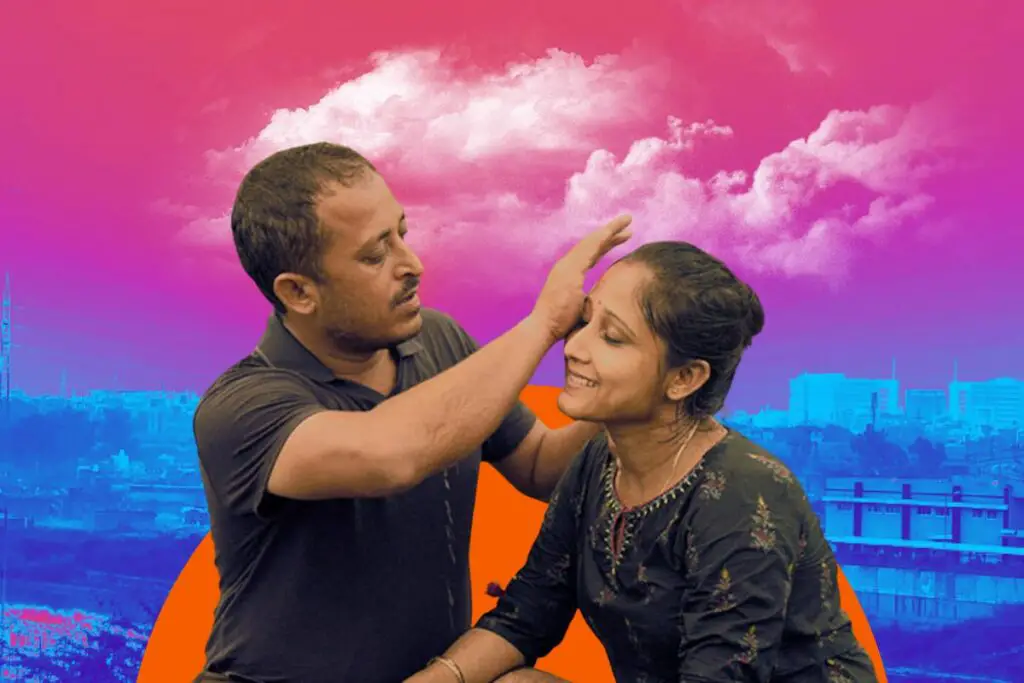In the wake of the COVID-19 pandemic, filmmakers worldwide have been compelled to reimagine their storytelling to reflect the profound shifts in our lives.
Rima Das, the visionary Indian director known for her captivating indie films, has adeptly risen to this challenge with her latest creation, “Tora’s Husband.” In this review, we will delve into the film’s narrative and themes, as well as explore how it compares to her previous works, all while celebrating its unique qualities.
A Meditation on Pandemic Realities
“Tora’s Husband” stands as a poignant meditation on the realities faced by a small-time businessman, Abhay Das (Jaan), as the virus spreads through rural Assam. As the film unfolds, we witness Abhay’s personal and entrepreneurial certainties crumbling under the weight of the pandemic.
This narrative, shot over two years in Das’s native village of Kalardiya, emerges as a testament to her commitment as a filmmaker. She wrote, edited, produced, and directed the film herself, crafting a narrative that is deeply personal yet universally resonant.
Slow-Burning and Introspective
In keeping with her signature style, Rima Das presents “Tora’s Husband” as a slow-burning and introspective journey. The film unfurls at a languorous pace, allowing viewers to immerse themselves in the world of Abhay and his family.
Abhijit Das, the director’s brother, and Tarali Kalita Das bring remarkable authenticity to their roles, infusing their characters with depth and emotion. This authenticity is one of the film’s most significant strengths, making it relatable on a profound level.
A Shift in Focus: Adult Angst and Restlessness
For those familiar with Das’s earlier works like “Village Rockstar” and “Bulbul Can Sing,” “Tora’s Husband” signifies a notable shift in focus.
While her previous films delved into childhood dreams and teenage awakenings, this latest offering is preoccupied with adult angst, restlessness, desolation, and despair. It explores the theme of what it means to be together yet alone, a sentiment that resonated with many during the pandemic.
The Mundane as Art: Das’s Unique Filmmaking Style
Rima Das’s filmmaking style is an ode to the beauty of the mundane and the quotidian. She possesses a remarkable ability to transform ordinary moments into cinematic poetry.
Like her previous films, “Tora’s Husband” stitches together vignettes from the lives of its characters, revealing the story’s undercurrents and subtexts. This approach lends her films a sense of authenticity and a local cadence that captures the essence of life in Assam.
The Role of Assamese Culture and Folk Music
One striking aspect of “Tora’s Husband” is its incorporation of Assamese culture and folk music. Sagar Desai’s background music, featuring Assamese folk songs, adds a layer of authenticity and emotional resonance to the film.
The ambient sounds of Assam’s countryside—the chirping of birds, the chatter of people on the streets, and the song of cicadas—transport the audience to the heart of rural Assam, making it an immersive experience.
Unspoken Realities: Reading Between the Lines
The film’s power lies in its ability to convey unspoken realities. Much remains unsaid, leaving viewers to read between the lines.
As Abhay grapples with mounting challenges, his wife Tora feels neglected. Their relationship becomes strained, with Tora describing him as “a nice man but a bad husband.” The film portrays the complex dynamics of a family facing adversity and the silent struggles that permeate their lives.
Life’s Resilience Amid Chaos
Amid the pandemic’s upheaval, “Tora’s Husband” reflects on the resilience of life. Those who contract the virus are treated as outcasts, reflecting the fear and social stigmatization that became rampant during the pandemic.
Yet, life, in its essence, continues. The film beautifully captures the idea that despite the dissonance caused by the virus, life’s inherent music persists.
Comparing “Tora’s Husband” to Das’s Previous Works
As we consider “Tora’s Husband” in the context of Rima Das’s filmography, it becomes evident that this film is a departure from her previous creations.
While “Village Rockstar” and “Bulbul Can Sing” explored the journeys of children and adolescents, this film delves into the complexities of adulthood. It represents a directorial evolution, showcasing Das’s ability to adapt her storytelling to diverse themes and age groups.
Conclusion: “Tora’s Husband” – A Remarkable Portrait of Pandemic Life
In summary, “Tora’s Husband” is a remarkable addition to Rima Das’s cinematic repertoire. It encapsulates the quiet yet profound realities faced by individuals and families during the pandemic. Through its introspective narrative, authentic performances, and a deep connection to Assamese culture, the film resonates with viewers on a personal level.
While it may mark a shift in focus for Das, her unique style and ability to find art in the ordinary remain as compelling as ever. “Tora’s Husband” serves as both a reflection of pandemic times and a testament to the enduring resilience of life. This cinematic offering from Rima Das is undoubtedly a must-watch, deserving of recognition on the global stage.
In theaters now

